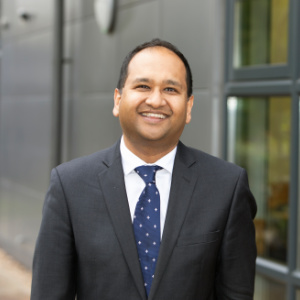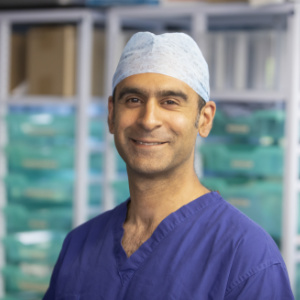Overview
What is prostatectomy?
Prostatectomy is the surgical removal of prostate gland.
Treatment
This can be partial or incomplete removal using a minimally invasive endoscopic technique such as TURP (usually done for benign prostatic enlargement). Complete removal of the prostate gland or radical prostatectomy is usually done for prostate cancer as a curative treatment. Our team includes the lead pelvic cancer surgeon for the north Essex population. We run specialist cancer clinics at Colchester Hospital, Southend University Hospital and Oaks Hospital.
Most of these operations are performed laparoscopically and we carry out nearly 100 of these operations every year.
Helpful Links
Most patients usually have the full work up in the NHS hospital including MRI scan and biopsies. However, some patients might need some additional scans such as a bone scan or PET scan prior to surgery depending on the stage and grade of cancer. This will be discussed at the time of the initial consultation. In addition, patients will need some pre-operative tests including bloods, urine tests, ECG, chest xray and possibly echocardiograms to make sure they are fit for general anaesthesia.
The surgery needs a very specialist machinery called the Da Vinci robot. This is not available at any of the private hospitals in Essex including the Oaks Hospital. We use an NHS facility (Colchester General Hospital) to do the private and insured patients. However, all private patients will have the initial consultation, tests and follow-up consultations at the Oaks Hospital.
Yes, you can have the surgery done privately if you are self-funding or self-paying. For details of the initial consultation and costs please contact us on 01206 581585.
On an average it can be between 6-8 weeks, although some patients have resumed work/driving after 4 weeks.
There is a possibility that you might need radiotherapy or hormonal therapy after surgery. This will depend on the final pathology of the removed prostate as well as the postoperative PSA, which is typically done 2 months after surgery.
Standard curative treatments for prostate cancer as an alternative to surgery include radiotherapy and brachytherapy. We work closely with Oncology colleagues in the region and will be happy to refer you to them should you choose to have a non-surgical treatment. There are few other experimental focal treatments such HIFU (High intensity focussed ultrasound), Nanioknife prostate therapy, cryotherapy (freezing the prostate). If you are suitable for any of these treatments, we will be able to refer you appropriately.
)
)
)







